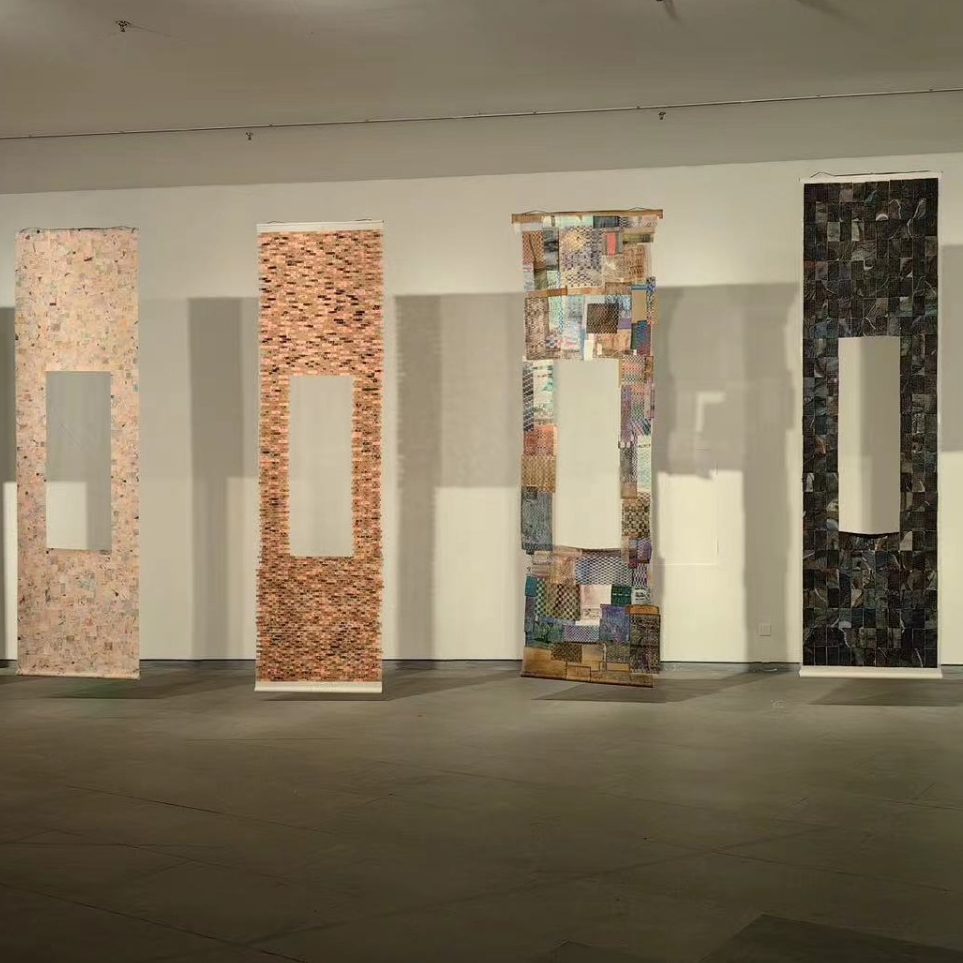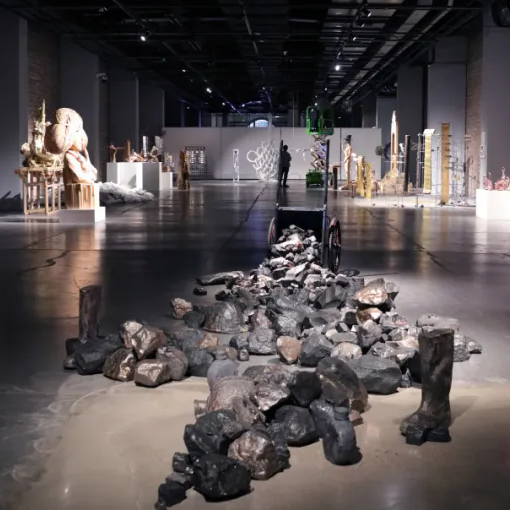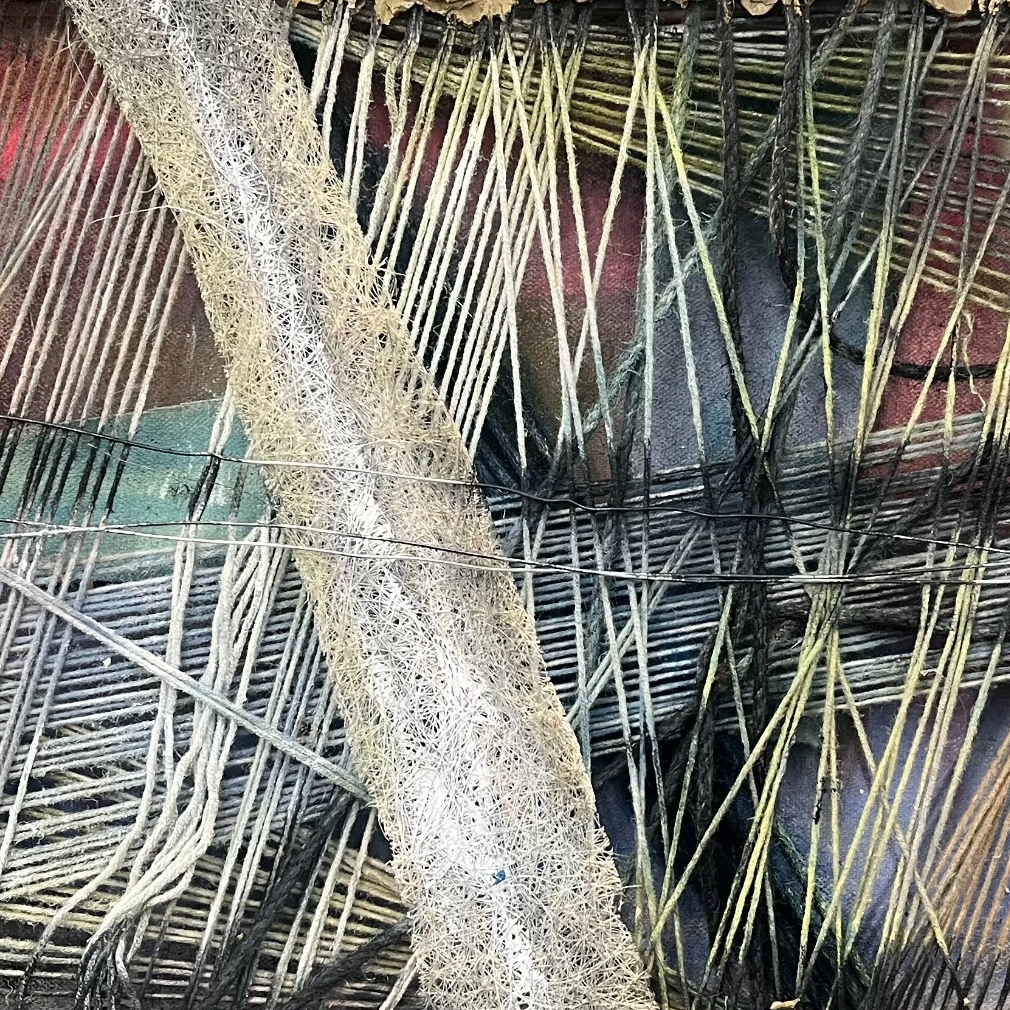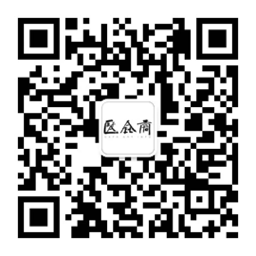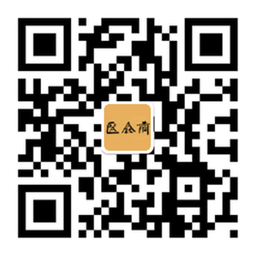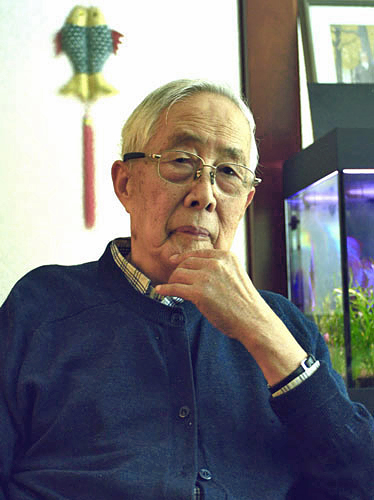
Hua Junwu
Sponsored by the Chinese Artists’ Association and the Shanghai Municipal Administration of Culture, Radio Film & TV, “Comic Life—Exhibition of Hua Junwu’s Donation” is hosted by the Shanghai Art Museum and is going to be opening at the end of April 2011.
This exhibition features works of more than two hundred pieces of comic drawings and over one hundred pieces of seals donated by late cartoonist Hua Junwu’s family in 2011. As a doyen of Chinese cartoons, Mr. Hua Junwu had lived in Shanghai for quite a long time before he went to Yan’an to join the anti-Japanese propaganda. In the 1950s, 1960s and 1980s Mr. Hua Junwu’s comics gained a high degree of popularity and constituted an integral part of the public cultural life. Initially his comics could be taken as an official call to arms since they are full of ironic power, just like a dagger. His cartoons mirrored the Chinese people’s political life including some influence from the Chinese political life of the time. His works are full of humor characterized by a Chinese national spirit. His rationale for the change of the plain from the difficult, the law of “rooting from the virtual”, and his unique idiomatic treatment of comics were a bridge into history and contain a pure Chinese style. He successfully integrated these approaches into the public’s political life with cartoons that took shape in forms that could be identified by others. Hua Junwu’s comics are also characterized by his wonderful comic figures and his capability to grasp the verve is recognized as being better than general figure painters. With skillful use of a Chinese brush, he introduced a thick taste like wood which penetrates with coherent uncomplicated stokes into an intoxicated and amused state. Although media art is now quite advanced, we believe these elaborately constructed penetrating satires still retain our desires and tender memories of reading comics. They will generate more thought when we are laughing.
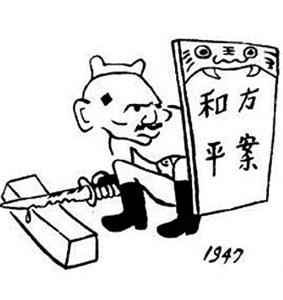
Sharpen Knife and Come Again
Born on April 24th, 1915 in Gangzhou, Zhejiang Province, Hu?a Junwu began to draw cartoons for fun when he was a junior school student. In 1930, the school magazine posted his first cartoon Students Getting Injections, vividly depicting the exaggerated expressions of pain on the faces of students being injected. In 1933, Hua headed for Shanghai to continue to high school. In 1936, he began to work as a bank clerk. His stay in Shanghai turned out to be the first important period in his cartoon career. As the center of the Chinese cartoon community at that time, Shanghai boasted a large number of brilliant cartoonists from home and abroad. Hua began to send cartoons to magazines and gradually made the acquaintance of many famous cartoonists, whose work greatly influenced him. Hua gained popularity for his cartoons depicting crowds. The cartoon December 9 Movement is a good example. The movement occurred in 1935 when students in Beijing, under the leadership of the Communist Party of China, held a patriotic demonstration, calling for the whole country to stop the civil war and unite to resist Japanese aggression. When the Anti-Japanese War broke out and Shanghai fell into enemy hands, Chinese faced the danger of becoming Japanese slaves and Hua was depressed by the grim situation. He happened to read a book showing Yan’an, the headquarters of the Chinese Communist Party, as a world of equality and freedom. This was what he yearned for and decided to go there. In Yan'an he learned that cartoons are meant for the masses and he became familiar with their dialects, tastes and habits, to produce more cartoons with themes close to their lives.
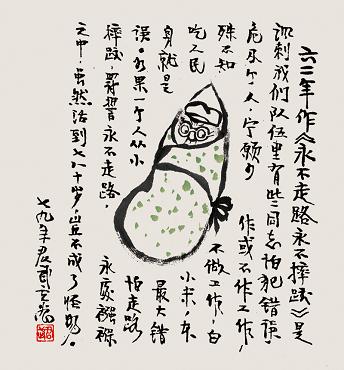
Never Walk, Never Tumble
Hua's years in Yan'an witnessed a great change in his style. He adjusted his subject matter during wartime, infusing his cartoons with all the irony, exaggeration and absurdity of armed conflict. He also directed his focus on satirizing the negative side of life. He once recalled: "in Shanghai I used to live in a 'pavilion room', with only one bed, one table, and one chair just for scholars. The occupant of the room can write or draw anything he wants, even if it is nonsense. If I had not gone to Yan'an later in my life, I might have remained a 'pavilion room' painter for the rest of my life." Hua moved to Beijing in 1949 when the People's Republic of China was founded. He set up Satire and Humor a column in the People's Daily, providing a platform for cartoonists. During the 1950s and 1960s, Hua produced many cartoons, mirroring people's daily life. The drawing "Never Walk, Never Tumble", satirizing people afraid of making mistakes, was highly appreciated by Chairman Mao. Like many other intellectuals in China, Hua faced difficult times during the Cultural Revolution. At the end of the Cultural Revolution, he became the vice-chairman of the China Artists' Association, one of the most prestigious art organizations in China. But he never stopped making new cartoons despite his busy schedule. Hua Junwu died following a period of illness at the age of 95 in Beijing on June 13th, 2010.
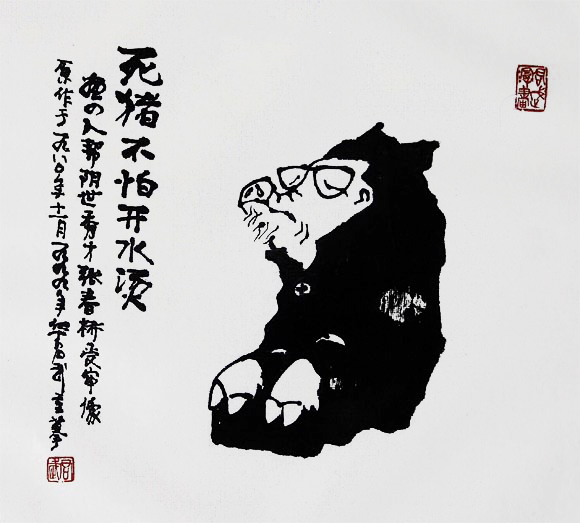
Dead Pig is Not Afraid of Boiled Water.
Hua's cartoons are distinctive for their "Hua Style" featuring people with unkempt dress and messy hair, unadorned yet imposing. Though Hua does not picture his characters in detail, he vividly illustrates their inner state. Using just a few strokes, Hua conveys rich meanings. He embodies his creative ideas in carefully chosen images with penetrating insight and acute observations. Nowadays, Hua Junwu is still considered as one of the most outstanding contemporary cartoonists in China.
His representative Works are “Sharpen Knife and Come Again”, “Never Walk, Never Tumble”, “Dead Pig is Not Afraid of Boiled Water.”, “False Illiterate”, etc. Publications include Hua Junwu chosen Comics, Hua Junwu’s Comics, How I Think and Draw Comics, and twenty-four other pieces of satire and literary illustrations. Animated film scripts created by him include The Proud General, Golden Dream, etc.
View the Chinese version of this article here



